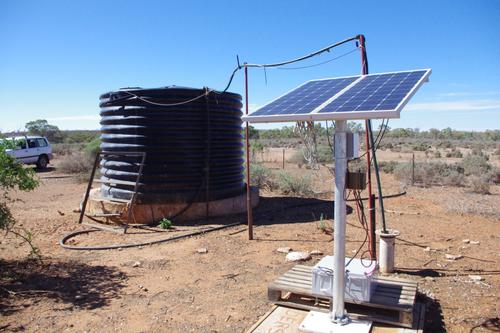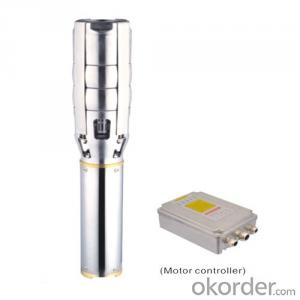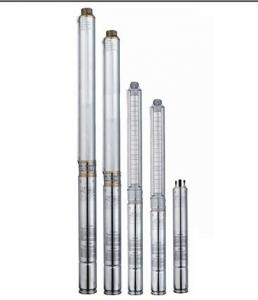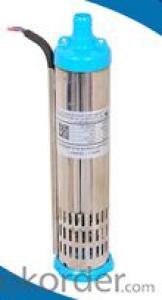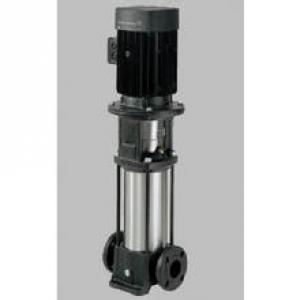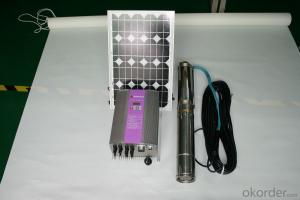Borehole solar water pump
- Loading Port:
- Shanghai
- Payment Terms:
- TT OR LC
- Min Order Qty:
- -
- Supply Capability:
- 300 set/month
OKorder Service Pledge
Quality Product, Order Online Tracking, Timely Delivery
OKorder Financial Service
Credit Rating, Credit Services, Credit Purchasing
You Might Also Like
how is the rotor made:
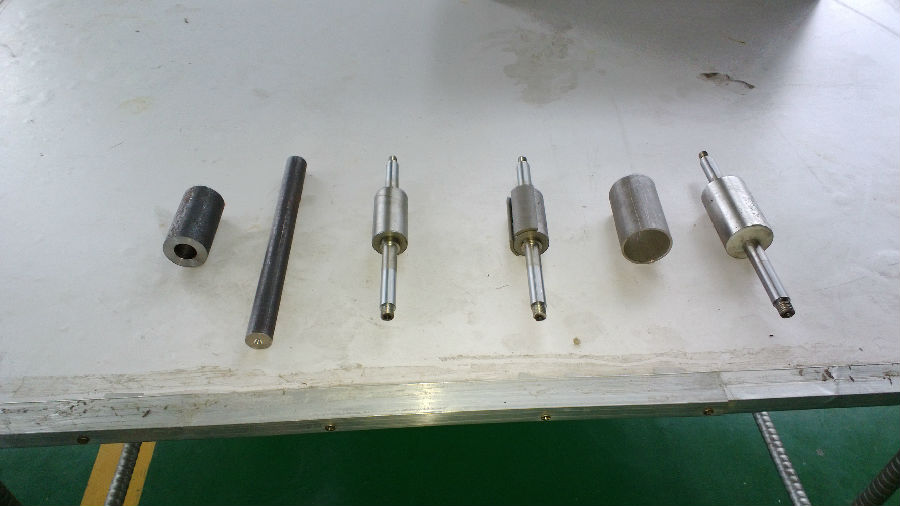
how is the motor made:
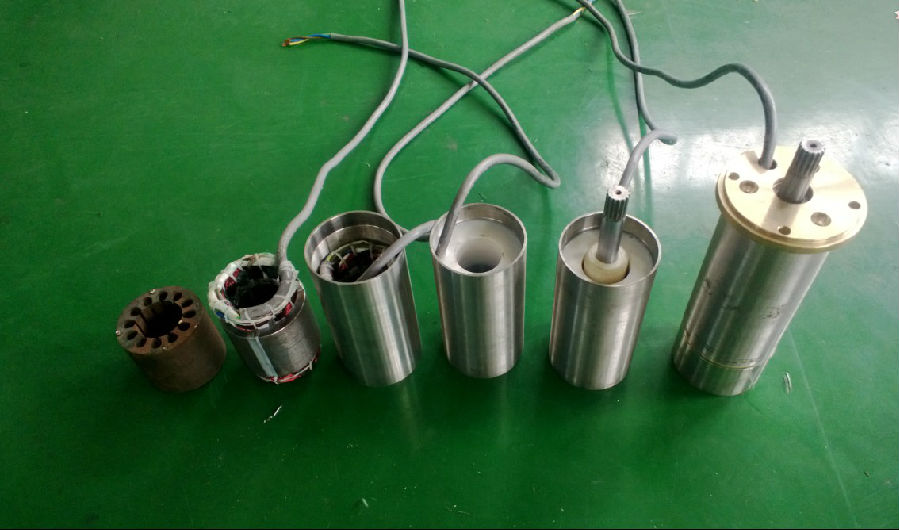
the pump :
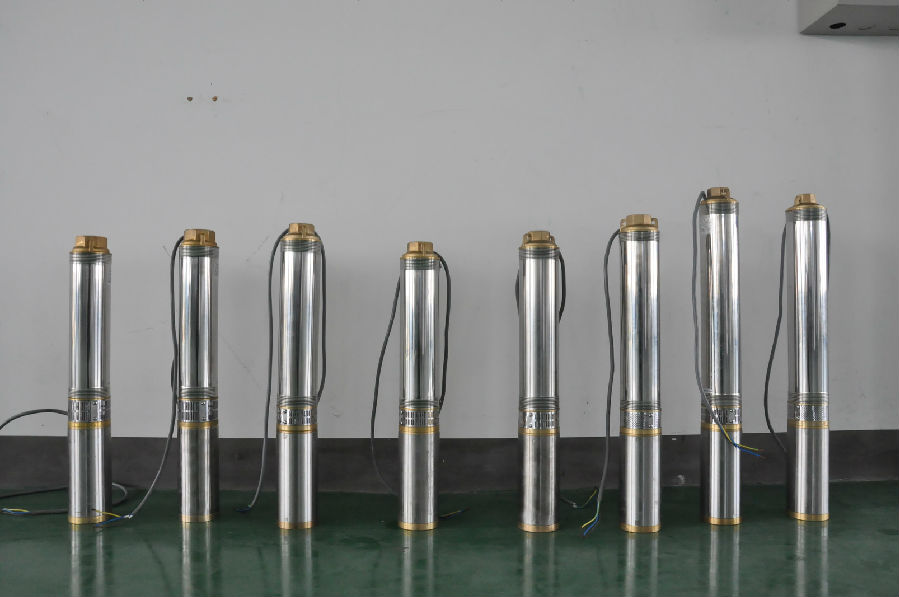
controller terminal connection:
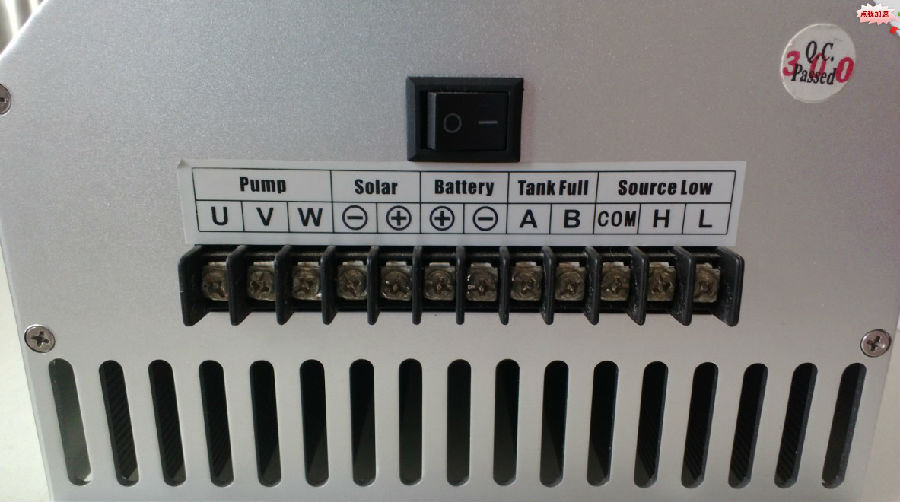
The permanent magnet:
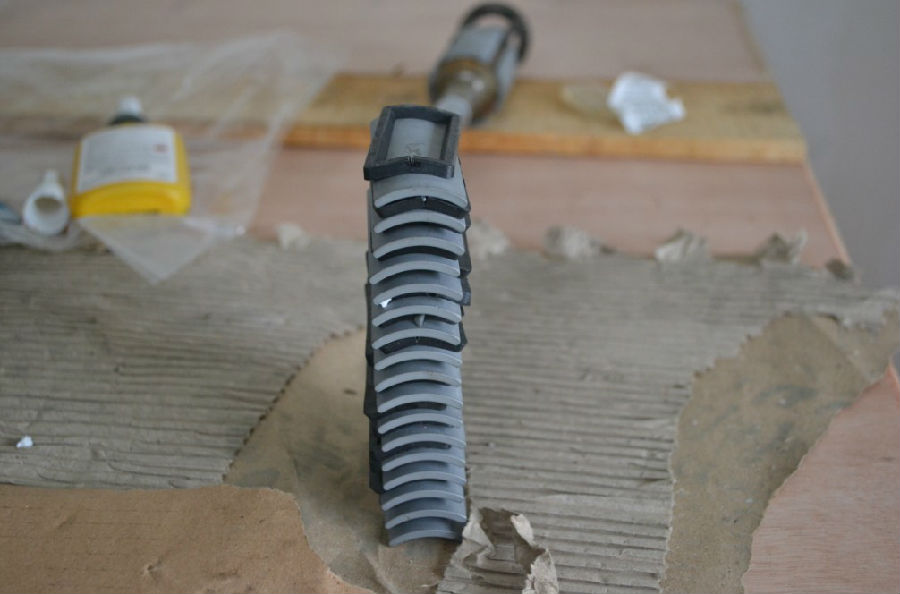
the impeller:
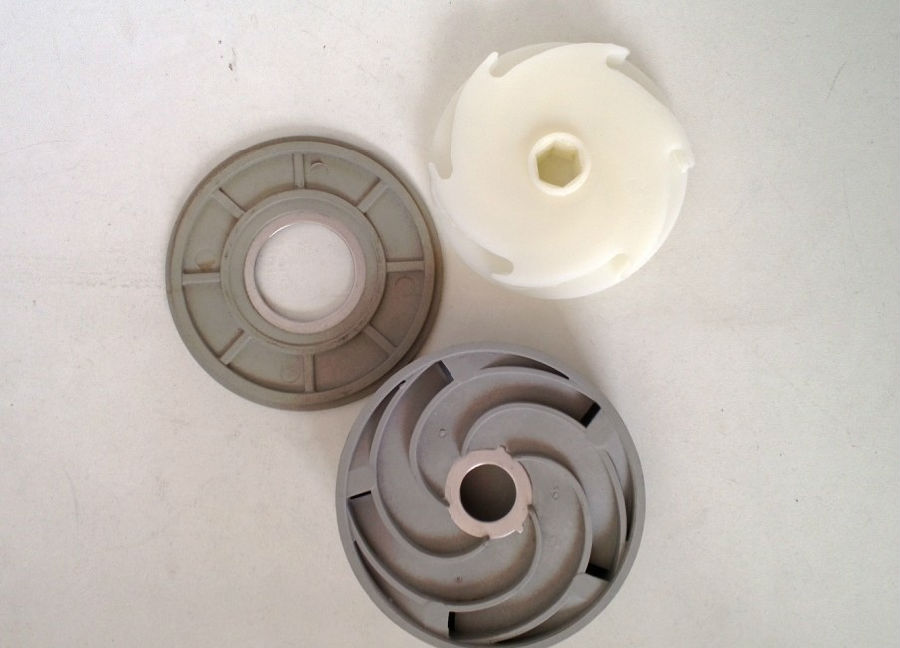
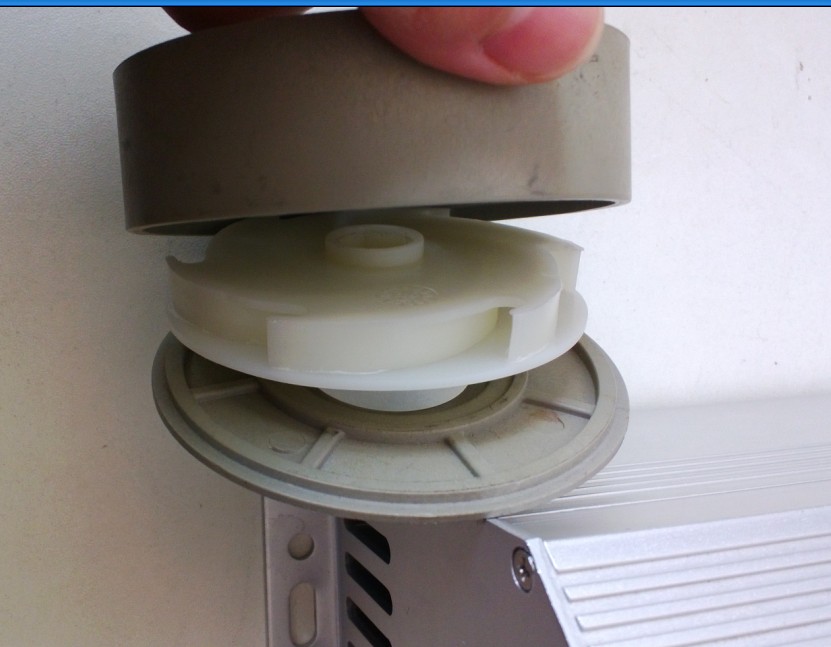
controller box:
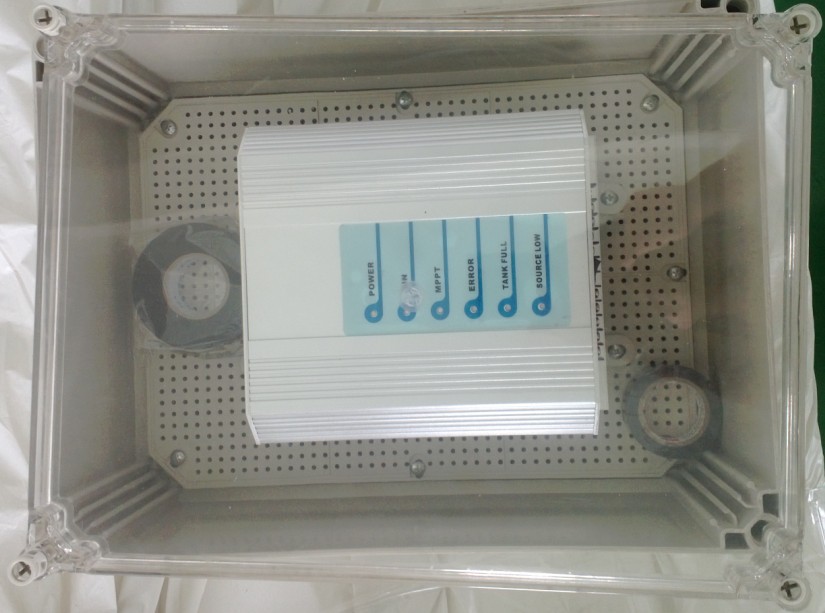
the senors:
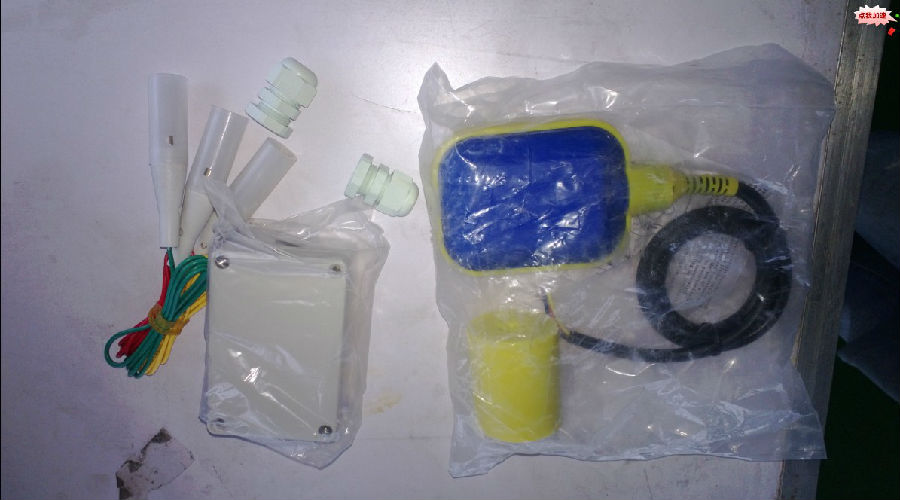
the test:
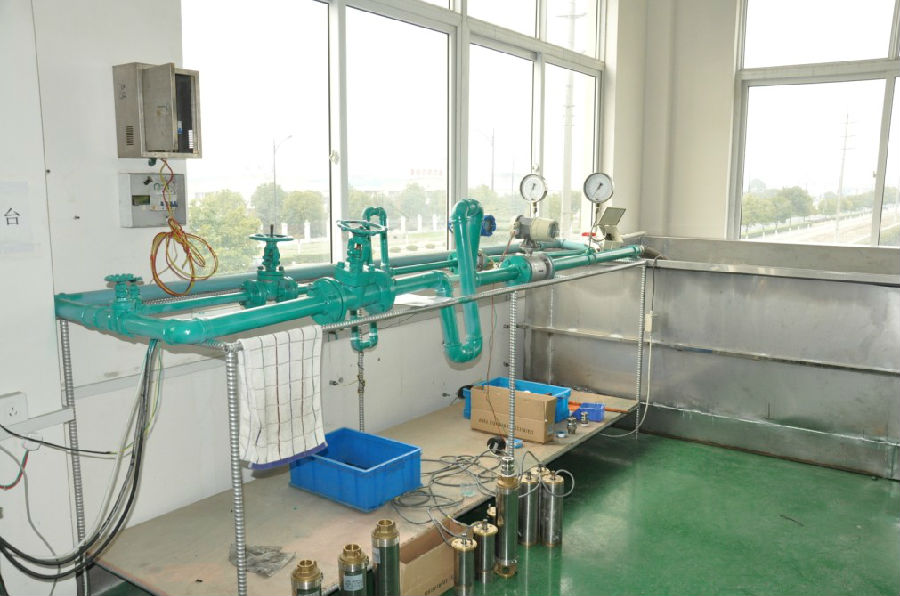
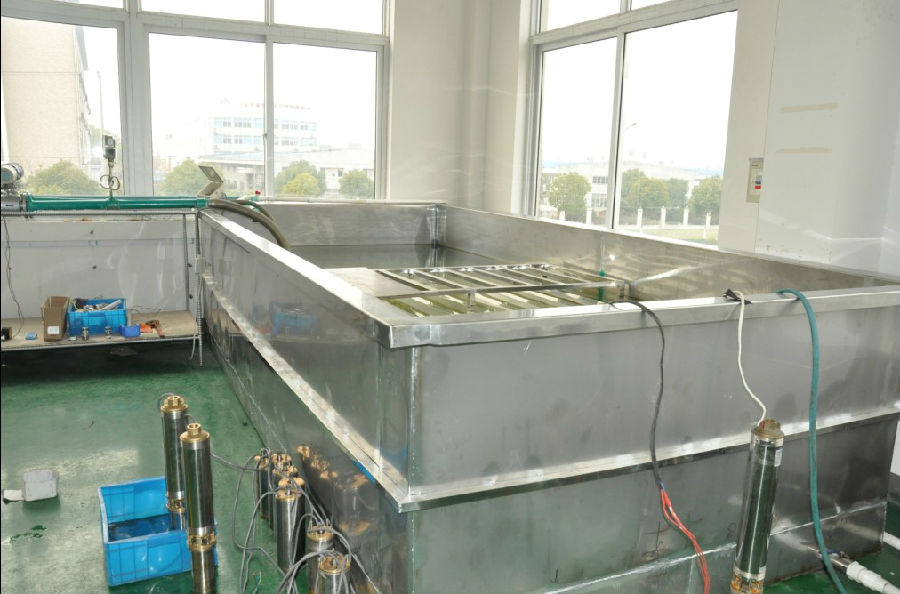
the application:
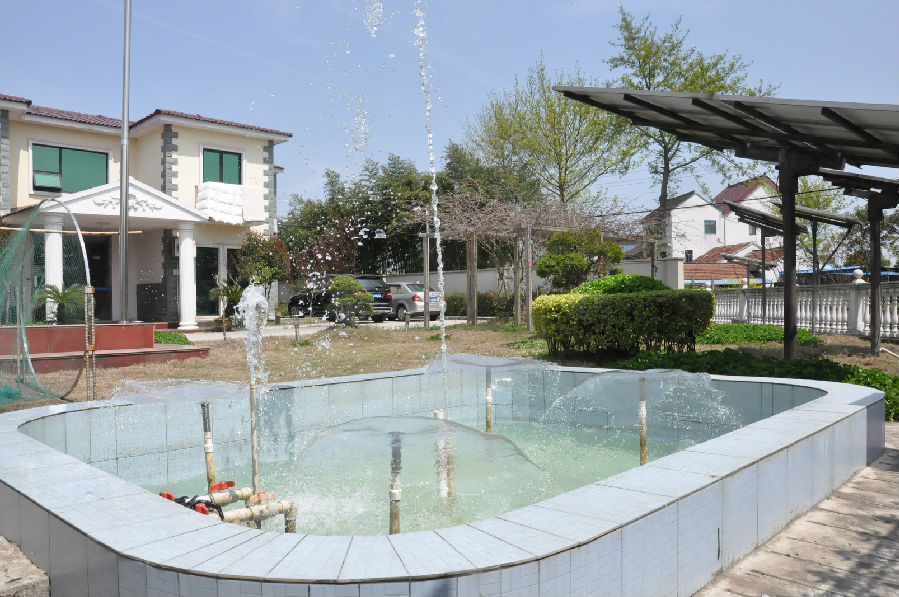
the package:
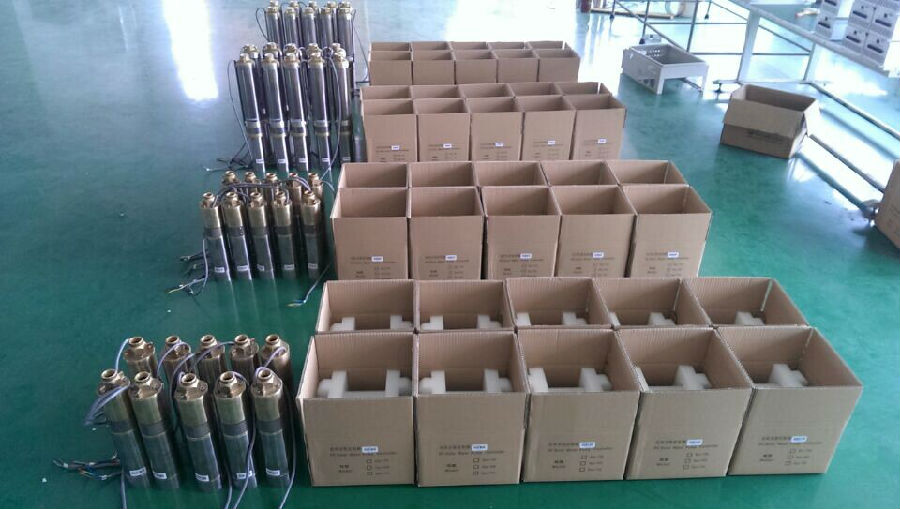
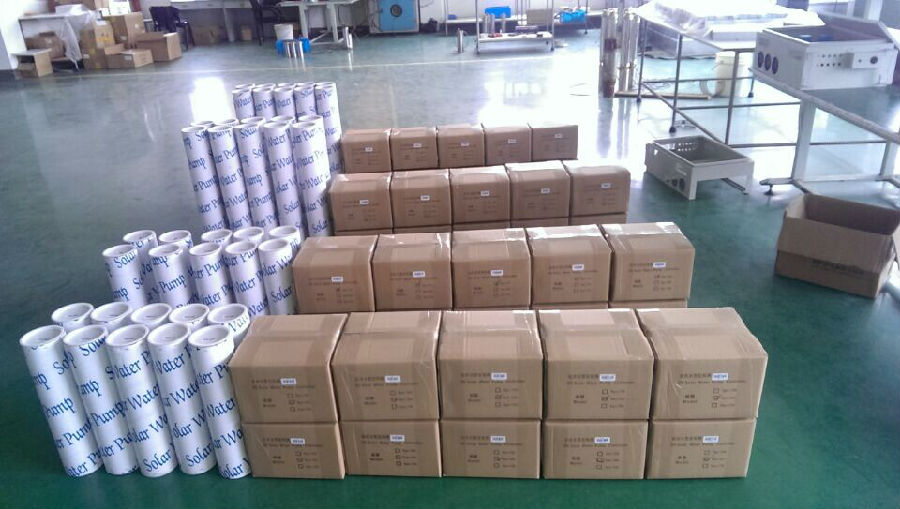
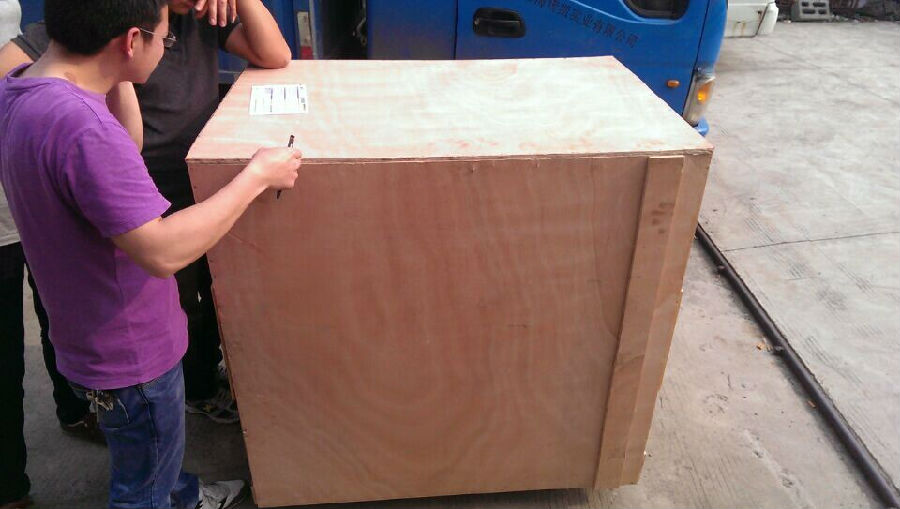
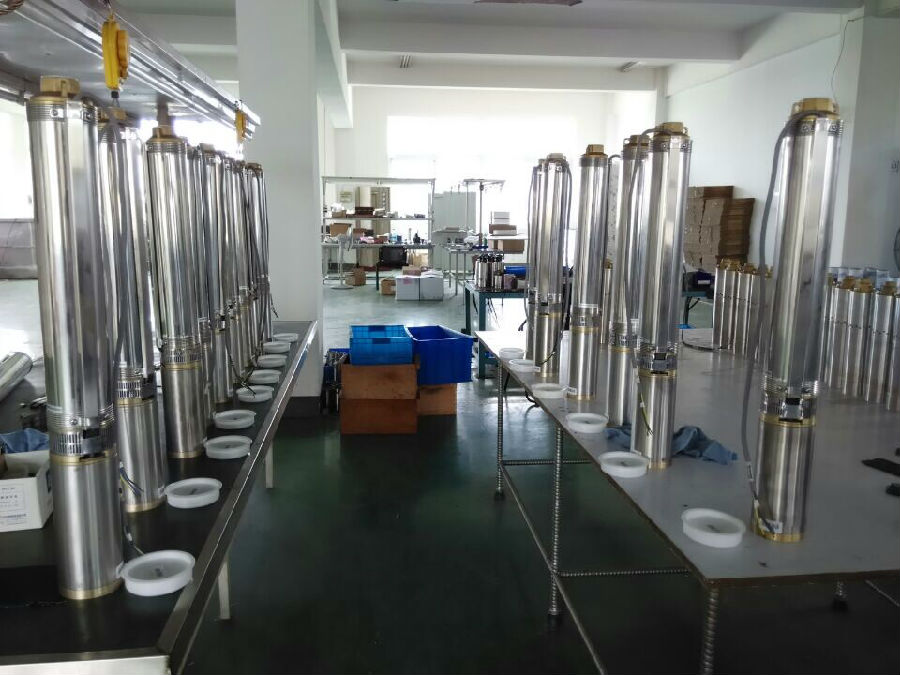
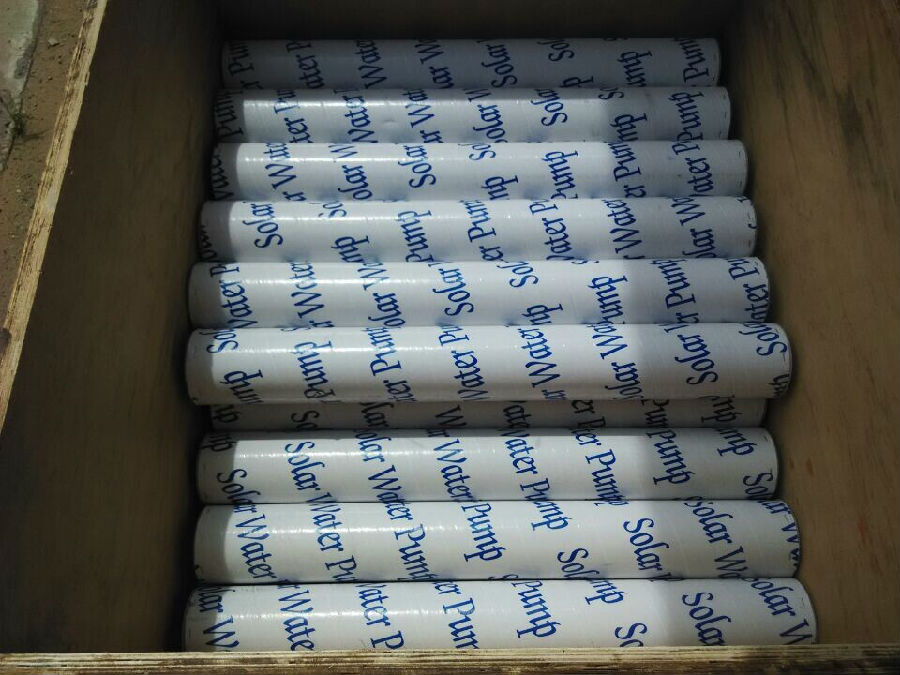
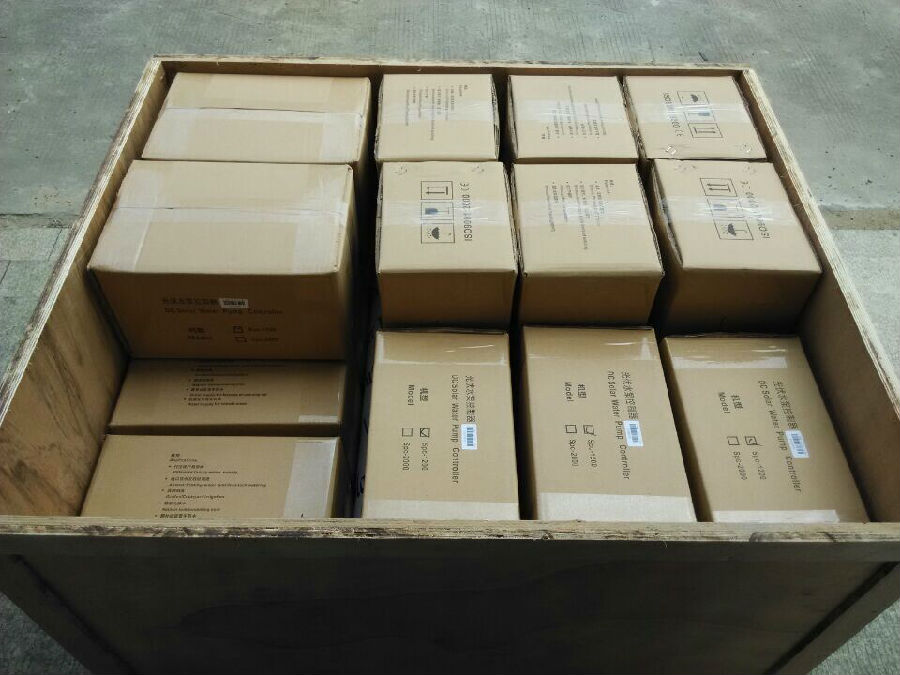
- Q: Can a solar pump be used in areas with limited access to skilled labor for installation?
- Yes, a solar pump can be used in areas with limited access to skilled labor for installation. Solar pumps are designed to be user-friendly and often come with detailed installation instructions. Additionally, they require minimal maintenance and can be easily operated by individuals with basic technical knowledge. This makes them a suitable option for areas with limited skilled labor, as they can be installed and managed by local communities or individuals with minimal training.
- Q: What is the maximum depth at which a solar pump can extract water?
- The maximum depth at which a solar pump can extract water depends on various factors such as the power of the solar panels, the efficiency of the pump, the capacity of the pump, and the conditions of the well or water source. Generally, solar pumps can extract water from depths ranging from 100 to 500 feet (30 to 150 meters) or even deeper. However, it is important to note that as the depth increases, the efficiency of the pump may decrease, and additional equipment or stronger solar panels may be required to overcome the increased resistance. Consulting with a professional or the manufacturer of the solar pump would provide more specific information regarding the maximum depth capabilities of a particular model.
- Q: Can a solar pump be used in agricultural sprayers?
- Yes, a solar pump can be used in agricultural sprayers. Solar-powered pumps are increasingly being utilized in agriculture as they offer a sustainable and cost-effective solution for water pumping needs. These pumps can provide the necessary water pressure for agricultural sprayers, allowing farmers to effectively and efficiently spray crops while reducing reliance on fossil fuels or grid electricity. Additionally, solar pumps can be integrated with other smart technologies to optimize water usage and irrigation processes in agricultural practices.
- Q: Can a solar pump be used for water supply in a commercial building or office complex?
- Yes, a solar pump can definitely be used for water supply in a commercial building or office complex. Solar pumps are highly efficient and reliable systems that utilize solar energy to pump and distribute water. They can be used to extract water from wells, boreholes, rivers, or any other water source, and supply it for various purposes such as irrigation, domestic usage, or industrial need. In a commercial building or office complex, a solar pump can be installed to ensure a constant and sustainable water supply. It can be used for various applications including providing water for restrooms, kitchens, landscaping, or cooling systems. The solar pump system consists of solar panels, a pump controller, and a water pump. The solar panels capture sunlight and convert it into electrical energy, which powers the pump controller. The pump controller manages the operation of the pump, ensuring optimal performance and efficiency. One of the major advantages of using a solar pump in a commercial building or office complex is the cost savings. Solar energy is a renewable and free source of power, which eliminates the need for electricity or diesel to operate the pump. This significantly reduces energy costs and makes the system more economical in the long run. Additionally, solar pumps have low maintenance requirements, reducing overall operating expenses. Moreover, using a solar pump promotes sustainability and environmental friendliness. By harnessing clean and renewable energy, a solar pump helps to reduce carbon emissions and dependence on fossil fuels. It also mitigates the risk of power outages or disruptions, ensuring a continuous water supply even during grid failures. In summary, a solar pump is an excellent option for water supply in a commercial building or office complex. It offers cost savings, sustainability, and reliability, making it a practical choice for meeting water needs efficiently and effectively.
- Q: Can a solar pump be used for water transfer between tanks or reservoirs?
- Yes, a solar pump can be used for water transfer between tanks or reservoirs. Solar pumps are specifically designed to run on solar power, eliminating the need for electricity or fuel. They can efficiently transfer water from one tank or reservoir to another, making them an environmentally friendly and cost-effective solution for water transfer applications.
- Q: Can a solar pump be used for water supply in refugee camps or temporary settlements?
- Yes, a solar pump can definitely be used for water supply in refugee camps or temporary settlements. Solar pumps are a sustainable and cost-effective solution for providing clean and reliable water access in remote areas that lack electricity infrastructure. They harness solar energy to power the pump, eliminating the need for fuel or electricity, making them ideal for off-grid locations like refugee camps. Solar pumps can be easily installed and maintained, ensuring a continuous and uninterrupted water supply, which is crucial for meeting the basic needs of the displaced populations.
- Q: How does the size of the solar pump controller affect its performance?
- The size of a solar pump controller can have a significant impact on its performance. The size refers to the capacity or power output of the controller, which is usually measured in watts. A larger solar pump controller with a higher power output can handle larger loads and can therefore support more powerful pumps. This means that a larger controller can handle higher flow rates and lift heights, allowing for more efficient water pumping. It can also support larger solar panels, which can generate more electricity and recharge the batteries faster. On the other hand, a smaller solar pump controller with a lower power output may not be able to handle high flow rates or lift heights. It may struggle to power larger pumps, leading to reduced performance and efficiency. Additionally, a smaller controller may have limited compatibility with solar panels, resulting in slower battery charging and reduced overall performance. Therefore, choosing the right size solar pump controller is crucial to ensure optimal performance. It is important to consider the required flow rate, lift height, and the power requirements of the pump. By selecting a controller with a suitable size, one can maximize the efficiency and effectiveness of the solar pumping system.
- Q: Can a solar pump be used for irrigation in greenhouses?
- Yes, a solar pump can be used for irrigation in greenhouses. Solar pumps are a sustainable and eco-friendly alternative to traditional pumps because they rely on solar energy to operate. They can effectively provide water to the plants in a greenhouse by utilizing solar panels to convert sunlight into electrical energy, which powers the pump. This eliminates the need for electricity from the grid or fuel-powered pumps, reducing both costs and carbon emissions. Solar pumps are also low maintenance and can be easily integrated into existing irrigation systems. Therefore, they are a viable and efficient option for irrigating crops in greenhouses.
- Q: Can a solar pump be used for water supply in remote areas?
- Certainly, water supply in remote areas can be effectively facilitated by the utilization of solar pumps. These pumps offer an excellent solution for regions that lack access to electricity from the grid or where the reliability of grid power is questionable. By harnessing solar energy, these pumps prove to be highly economical and environmentally friendly. The mechanism of solar pumps involves the conversion of sunlight into electricity using photovoltaic (PV) panels. This generated electricity powers the pump, which draws water from various sources such as wells, rivers, or reservoirs. The water can then be stored in tanks or directly distributed to designated areas for multiple applications, including drinking, irrigation, or livestock purposes. The application of solar pumps in remote areas presents numerous advantages. Primarily, they diminish the reliance on traditional fuel-powered pumps, thereby eliminating the need for fuel transportation and reducing carbon emissions. Furthermore, solar pumps require less maintenance and exhibit greater reliability compared to fuel-powered pumps. Additionally, their extended lifespan leads to reduced operational costs and enhanced efficiency. Moreover, solar pumps can be conveniently installed in remote areas without the necessity for complex infrastructure. This feature makes them an ideal solution for areas where conventional electricity supply is absent or impractical. Furthermore, solar pumps can be designed to function even in low-light conditions, ensuring a continuous water supply despite unpredictable weather patterns. To conclude, solar pumps represent a viable and efficient alternative for water supply in remote areas. They offer a sustainable and dependable water source while simultaneously reducing operational costs and environmental impact. The incorporation of solar pumps in such regions can significantly enhance access to clean water and contribute to the overall development and well-being of the communities.
- Q: Can a solar pump be used in sewage treatment plants?
- Indeed, sewage treatment plants can utilize solar pumps. Due to their cost-effectiveness, eco-friendliness, and reliability, solar pumps are increasingly being adopted in sewage treatment facilities. These pumps are fueled by solar energy, eliminating the need for grid electricity and thus diminishing the plant's operational expenses. Solar pumps possess the ability to handle various pumping requirements of sewage treatment plants, encompassing the movement of wastewater, sludge, and other fluids. They efficiently propel the sewage through the treatment process, guaranteeing appropriate treatment and disposal. Moreover, integrating solar pumps into existing sewage treatment plants can be accomplished with minimal modifications, rendering them a feasible and sustainable choice for sewage treatment facilities.
Send your message to us
Borehole solar water pump
- Loading Port:
- Shanghai
- Payment Terms:
- TT OR LC
- Min Order Qty:
- -
- Supply Capability:
- 300 set/month
OKorder Service Pledge
Quality Product, Order Online Tracking, Timely Delivery
OKorder Financial Service
Credit Rating, Credit Services, Credit Purchasing
Similar products
Hot products
Hot Searches
Related keywords

